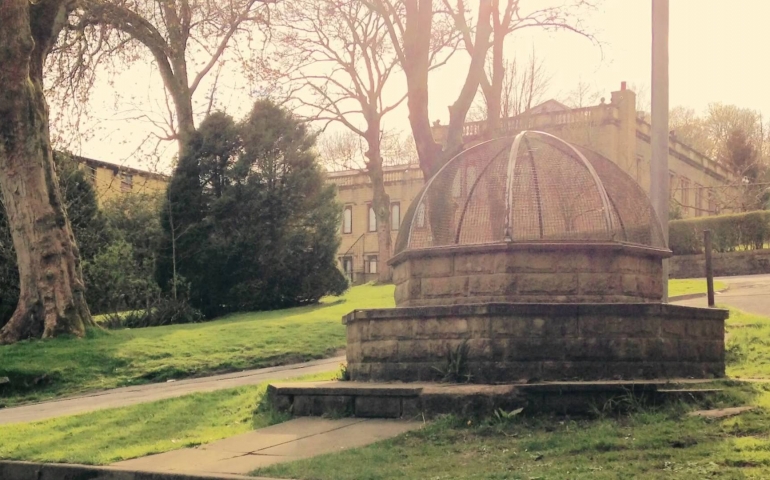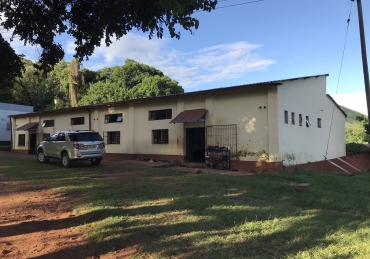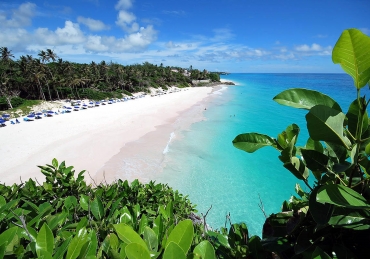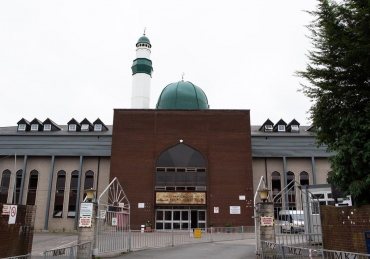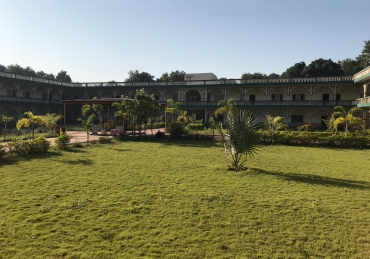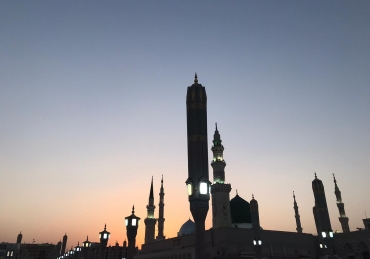The Unsung Hero: Mawlānā Ali Mayat Raḥimahullāh (1374/1954 – 1444/2022)
بسم الله الرحمن الرحیم
Yesterday night, we received the sad news of the demise of our very dear and beloved family friend, Mawlānā Ali Mayat Raḥimahullāh who spent his life in the service of others particularly at our Darul Uloom Bury with great passion, devotion and commitment. He was a unique person and is fondly remembered by the students and staff of Darul Uloom Bury and those who interreacted with him. My respected father Mufti Shabbir Ahmad and our respected Shaykh Muhammad Saleem Dhorat requested me earlier to pen a short article in memory of Mawlānā Raḥimahullāh and provide a glimpse into his life and qualities, particularly for the benefit of those who do not know him.
Mawlānā Ali ibn Fakir Mayat Raḥimahullāh was born in Mozambique on Sunday 28 November 1954 which corresponds to 3 Rabīʿ al-Thānī 1374. This is the date written on his passport although my respected father suggests that he may have been born earlier than this, there was not much emphasis on recording the actual date in those days. Mawlānā’s father migrated from India to Mozambique in 1946. At the time, he only had one son. He called his family to Mozambique a few years later.
At the age of 12, Mawlānā travelled to Pakistan where he enrolled at the famous seminary, Jamia al-Uloom al-Islamia in Binori Town in Karachi and studied here for twelve years. He only ever returned home to Mozambique once when his mother passed away. Mawlānā first memorised the Quran and thereafter joined the ʿĀlim programme. This was in the late 1960s and 1970s when Mawlānā Muḥammad Yūsuf Binori Raḥimahullāh (d. 1397/1977) was alive. Mawlānā Ali Ṣāḥib served Ḥaḍrat Mawlānā Binori with great dedication. Mawlānā Binori was very fond of him. He would rest his hands on Mawlānā Ali’s (then known as Ali Bhai) shoulders from his residence to the Masjid. Our respected Mufti Radaul Haq Ṣāḥib (b. 1369/1950) commented on his recent visit to the UK:
“Mawlānā Ali Mayat would do Khidmat of Ḥaḍrat Binori. Ḥaḍrat Binori would place his hands on his shoulder. If someone else would step in to do Khidmat, he would retreat and allow the person to do Ḥaḍrat’s Khidmat. He would not be obstructive at all.”
He further said:
“Ḥaḍrat Binori would prefer Mawlānā Ali to hold and place his shoes. On one occasion, another student placed Ḥaḍrat Binori’s shoes in a way that it was not facing the Qiblah. Ḥaḍrat Binori commented that if you do not know how to place shoes then why do you do so? Leave it to him.”
In 1976, my respected father enrolled in the same Madrasah and studied here for six months. He recalls,
“I remember seeing Mawlānā Ali Ṣāḥib serving Ḥaḍrat Binori. Even whilst studying, Mawlānā was responsible for the kitchen for the African students. We would give him money on a monthly basis. He was involved in niẓāmat (administration) since then. He was known as Ali Bhai.”
He adds,
“My very dear friend, the martyr, Ḥaḍrat Mawlānā Dr Adil Khan Ṣāḥib [d. 1442/2020] mentioned to me that on one occasion a few Madrasah students including Mawlānā Adil played a football match with the locals of Karachi and the students were defeated. The locals started to taunt the Madrasah students that they do not know how to play football. Another match was organised and Mawlānā Adil Ṣāḥib and others came from Farooqia to Binori Town and requested Ali Bhai and some other African students to assist them. Ali Bhai was the goal keeper, he did not allow a single goal in, and the Madrasah students won 10-nil.”
My dear friend from Canada, Mawlānā Sayyid Abdul Wahhab Qadri studied by Mufti Zarwali Ṣāḥib (d. 1442/2020) after graduating from Darul Uloom Bury. He narrates from Mufti Zarwali Ṣāḥib who said:
“Whilst studying in Binori Town, I would do Ḥaḍrat Binori Raḥimahullāh’s Khidmat. No one was ever able to exceed me, except for one student from Mozambique (referring to Mawlānā Ali Ṣāḥib). He had money and he would spend it all on Ḥaḍrat Raḥimahullāh. I could not compare myself with him as I was poor.”
Mawlānā Sayyid Abdul Wahhab adds, “I mentioned the above to Mawlānā Ali Mayat when he came to Toronto, he laughed it off saying Zarwali would always come first or second in the exams.” Mufti Zarwalī Ṣāḥib and Mawlānā Ali Ṣāḥib were in the same class.
After his graduation, Mawlānā Raḥimahullāh migrated from Pakistan to the UK in 1979. He first arrived to Leicester and stayed with his elder brother, Ismail Bhai. For a short while, he served as Imam in Jaame Masjid Leicester and also taught Maktab here. Thereafter, his marriage was arranged with the daughter of Ahmad Bhai Dhorat, a prominent personality in Blackburn who is also related to us and also to our respected Shaykh Muhammad Saleem Dhorat. Thereafter, he moved to Blackburn and in 1981 joined Darul Uloom Bury, first as a Ḥifẓ class teacher and thereafter in the office. During these early years in Blackburn, he also served as the deputy Imam in Masjid Noorul Islam alongside Ḥaḍrat Mawlānā Ismail Wadi Raḥimahullāh (d. 1434/2012), the father of our respected Mufti Muhammad Tahir and Shaykh Fazlehaq Wadi.
My respected father recalls,
“Mawlānā Ali Ṣāḥib served in Darul Uloom with distinction. He would not say no to anyone. He would do everyone’s work, not just in Darul Uloom, but also outside of Darul Uloom. He would host scholars from Pakistan particularly those who would visit for the Khatm Nubuwwat cause. This was a result of Ḥaḍrat Binori’s supplication. He was dedicated to Darul Uloom [Bury] and our Ḥaḍrat Raḥimahullāh [d. 1441/2019]. He would keep a close eye on the camera and would deliver letters to Ḥaḍrat in the library as soon as he would arrive. The highlight of his life is service to others. He would do work for everyone happily. There are very few people who have such genuine and sincere love and affection for others. He did not have any ill feelings for anyone and had no takalluf (pretentiousness). He was punctual on his Ṣalāh. The Masjid would not have to worry if the Imam was late in Fajr Ṣalāh, Mawlānā Ali Ṣāḥib would be present and lead Fajr Ṣalāh. He was very active. He would not speak ill of anyone. Every Ramadan, he would assist with Masjid donation collections for Saharanpur, Binori Town and elsewhere and would do so happily and with full responsibility.”
My respected father adds,
“We, the students and staff of Darul Uloom are all indebted to Mawlānā Ali Ṣāḥib for his favours. I am personally indebted to him. He would reside in Audley Range which is closer to Darul Uloom Bury than where I live in Little Harwood. Despite this, he could collect me from my house every day and drop me and he did this for many years. He was so punctual that he would be outside my house at 8.20am so we could reach Darul Uloom for 8.45am. This would increase his journey by 15 minutes each way as Little Harwood is in the opposite direction. There was no motorway (M65) then. This despite the fact that we are both of similar age and he did not study by me. He did this wholeheartedly. Allah Almighty reward him.”
Mawlānā served in Darul Uloom between 1981 and 2014 with distinction. For most of this period, he was responsible for the office. He was an operational person, full of energy and enthusiasm. He would be rushing through the corridors of Darul Uloom getting things done. At 6am, he would visit the Cash and Carry and purchase items for his father in law’s shop and also for the Darul Uloom tuck shop and kitchen. Thereafter, he would spend the rest of the day in Darul Uloom. He would visit the bank and post office and do errands for the Darul Uloom along with attending to the personal matters of students and staff, such as depositing money in the bank and posting letters. He would not say no to anyone. It is no surprise that he is fondly remembered by the students and staff alike. It also notable that he suffered from mental health and was on medication, yet continued to work in Darul Uloom.
In 2014, he started rendering his services at Markazul Uloom in Blackburn and did so until recently when his health deteriorated. He suffered from Covid and remained unwell since. Recently, in October, his health deteriorated further and he spent a few weeks in hospital. He suffered from chest infection. My respected father and elder brother visited him in hospital and when discharged, encouraged him to visit the Masjid for Ṣalāh. He was quite weak. However, he came twice to Darul Uloom Blackburn for Ṣalāh.
Mawlānā Raḥimahullāh’s soul left this world at home yesterday at 10.30pm. Immediately, we visited his residence with my parents and elder brother, we are fortunate that as a family we enjoin a close relationship with Mawlānā and his family. Mawlānā’s face was full of Nūr and radiance. The local Imam of Masjid Noorul Islam, our respected Mufti Muhammad Salih Ṣāḥib was also present. Mawlānā and Mufti Salih Ṣāḥib also had a very good and close relationship.
This morning, the funeral arrangements were made and the Janāzah Ṣalāh time was fixed at 3.30pm at Blackburn Pleasington Cemetery. Prior to Ṣalāh, my respected father requested my respected teacher Mawlānā Abdurrahim Ṣāḥib to deliver a short talk in English. Mawlānā described his efforts in Darul Uloom and reminded us of the ḥadīth pertaining to remembering the good qualities of the deceased (Sunan Abī Dāwūd, 4900; Sunan al-Tirmidhī, 1019), adding that the death of a person who passes away in an internal illness (al-Mabṭūn) is also Shahīd (martyr). My respected father spoke in Urdu and described Mawlānā’s dedication to Darul Uloom including worrying about Darul Uloom in the holidays. He said,
“The biggest thing is that Mawlānā never made apparent that he is a scholar.”
He also said, “All this is a result of the service Mawlānā rendered for Ḥaḍrat Binori Raḥimahullāh. Their connection was very strong similar to that of a father-son relationship.” He added, “The first person to invite Mufti Raḍāul Ḥaq Ṣāḥib to the UK was Mawlānā Ali Ṣāḥib.” He also said, “He got the supplications of Ḥaḍrat Mawlānā Yūsuf (Binori) and our Ḥaḍrat Mawlānā Yūsuf (Motala).” He further said,
“When I saw Mawlānā last night and even now, it appears that he is sleeping in Iʿtikāf. It does not feel like that he is a dead person. He is resting with comfort.”
The Janāzah Ṣalāh was led by Mawlānā’s son, my dear friend Mawlānā Ibrahim Mayat Ṣāḥib. The burial was guided by Mufti Muhammad Salih Ṣāḥib, and Mawlānā Raḥimahullah’s four sons entered the grave. My respected father requested Shaykh Muhammad Saleem Dhorat to make the Duʿaʾ after the burial. The Quran recitation at the head and feet side was undertaken by Mawlānā Raḥimahullāh’s grandson. According to my estimate, over a 1000 people attended the Janāzah Ṣalāh, and Allah knows best.
Later in the evening, we visited the family for condolences. Our respected Mufti Abdussamad Ṣāḥib also came. A short while later, our respected Shaykh Muhammad Saleem Dhorat also arrived. Earlier in the day, my respected father mentioned in the cemetery that Shaykh also had a close relationship with Mawlānā Ali Ṣāḥib from his studying days at Darul Uloom Bury in the 1980s, and that Mawlānā’s wife and Shaykh are from the same village Bhoria, in Gujarat, India. Mawlānā is from Surkhai. My father’s mother was also from Bhoria and would be delighted when Shaykh Saleem would visit our house in the 1980s as a student and thereafter. Many other scholars were also present including Mawlānā Ali Ṣāḥib’s sons and sons in law. Memories were shared of Mawlānā Raḥimahullāh. My respected father described how Mawlānā Ali Ṣāḥib would serve Ḥaḍrat Binori. Shaykh Saleem rightly commented that, despite this honour, Mawlānā would never make reference to this, nor explicitly nor in passing, a sign of his humility. He was truly a hidden gem and in the words of Shaykh Saleem an “unsung hero”.
My respected father and Ḥāfiẓ Bashir Ṣāḥib were very close to Mawlānā. I recall that many times they would travel together to programmes and otherwise. Sometimes I would also join them. My father commented that he never did anyone’s Gībah (backbiting) and had everyone’s interest to heart. Mawlānā’s father-in-law Ahmad Bhai Dhorat commented, “Mawlānā would serve others, but would not ask to be served by others.” Shaykh Saleem Dhorat commented that it was a result of Ḥaḍrat Binori’s supplication that he came to the UK and served the Dīn for forty years. Allah Almighty made it happen that he did not return to Mozambique. My respected father commented that he shall get the reward for Khatm Nubuwwat efforts in the UK as he would host scholars from Pakistan.
My respected father mentioned to Shaykh Saleem that he insisted on Mawlānā Ibrāhīm Ṣāḥib to lead the Ṣalāh. This not least because the children’s inner feeling for the deceased father cannot be felt by someone else. Shaykh Saleem concurred adding that when his respected father passed away, he had requested Ḥaḍrat Mawlānā Hāshim Ṣāḥib to lead the Janāzah Ṣalāh. A few days later, Ḥaḍrat Mawlānā Miya Ahmad Khergami Raḥimahullāh visited and said to Shaykh Saleem that it was very good for Ḥaḍrat Mawlānā Hāshim Ṣāḥib to have led the Ṣalāh and that Inshāʾ Allah his Duʿaʾ will be accepted, however, it would have been better for Shaykh Saleem as a son to have led the Ṣalāh. My father commented that the Nikāḥ Khuṭbah should also be read by the father if they are able to do so.
One person who was very close to Mawlānā was our respected Ḥāfiẓ (Mawlānā) Bashīr Hafejee Ṣāḥib, who worked in the Darul Uloom office with Mawlānā for many years. I asked him about Mawlānā Raḥimahullāh. He said:
“We worked in the same environment for nearly two decades. He never ever let me feel that he was my senior. All the brother-in-law’s and sister-in-law’s children (wife’s nephews and nieces) felt very comfortable with him and they would regard him as a father figure. They would play with him and talk to him. He was very fond of sweets. In terms of time keeping, he was very punctual.”
Mawlānā Ibrahim Mayat Ṣāḥib commented to me later about his father, he said:
“There is one verse that describes Abba – ففروا إلى الله (So, flee to Allah) and there is one ḥadīth that sums his life: خير الناس أنفعهم للناس (The best of people are those who are of most benefit to the people).”
Another person who was very close to Mawlānā Ali Ṣāḥib was our librarian, Mawlānā Muhammad Deedat Raḥimahullāh (d. 1439/2018). Many other pioneers of Darul Uloom have left this world; the martyrs in the 1980s, our teacher Mawlānā Umarji Raḥimahullāh (d. 1435/2014), our Ḥaḍrat Mawlānā Yusuf Motala Raḥimahullāh (d. 1441/2019), Qari Yaqub Adia Raḥimahullāh, and now our Mawlānā Ali Ṣāḥib Raḥimahullāh. Readers are also requested to supplicate for our respected Mawlānā Hāshim Ṣāḥib, Allah Almighty grant him ʿĀfiyah.
May Allah Almighty forgive Mawlānā Ali Ṣāḥib, accept his lifelong service and grant him an abode in Jannat al-Firdaws. Mawlānā leaves behind his wife, Zulekha Apa and eight children, Mawlānā Ibrahim, Mawlānā Muhammad, Mawlānā Yusuf, Mawlānā Yahya, Fatima Apa, Haleema Apa, Raasheda Apa, and Sheema Apa. Allah Almighty protect them and grant them the ability to serve the Dīn with the same rigour and passion. Mawlānā’s elder brother Ismail Bhai currently resides in Leicester, and sister Amina resides in Mozambique. Prior to Mawlānā, two brothers and two sisters passed away.
Undoubtedly, there are many colleagues who will have fond memories of Ḥaḍrat Mawlānā Raḥimahullāh. Our beloved Prophet ﷺ instructed us to remember the good qualities of the deceased (Sunan Abī Dāwūd, 4900; Sunan al-Tirmidhī, 1019). Colleagues are therefore requested to email admin@islamicportal.co.uk with their memories, whether brief or detailed, and Inshāʾ Allah, we will endeavour to publish these on this webpage.
There are many methods of benefiting Mawlānā Raḥimahullāh after his demise. This includes Duʿaʾ and sending reward via the recitation of the Quran. Ṣadaqah is also a very powerful method of benefiting the deceased. We have therefore, under the guidance and instruction of my respected father and Mawlānā Ibrahim Mayat Ṣāḥib, launched an appeal to build a ‘Masjid Mawlana Ali Mayat’ in Mawlānā’s country of birth, Mozambique. The cost of building a Masjid in the rural areas is approximately £30,000. The Masjid will feature a Maktab and Imam’s residence also along with toilet and ablution facilities. Everyone is requested to donate wholeheartedly. Further details are available on the following link: https://www.justgiving.com/fundraising/masjid-mawlana-ali-mayat-mozambique-appeal. May Allah accept and make this Masjid a project a Ṣadaqah Jāriyah for Mawlānā Raḥimahullāh. Āmīn.
Yusuf Shabbir (with contributions from Mawlānā Ibrahim Mayat Ṣāḥib and the family)
15 Rabīʿ al-Thānī 1444 / 10 November 2022
Various reflections from readers on Mawlānā Ali Mayat Raḥimahullāh
The following are some reflections received via email, with some editorial amendments.
Reflection 1
A message from my mother about my dear uncle Mawlānā Ali Raḥimahullāh:
“As someone who has known Mawlānā Ali Raḥimahullāh from the very beginning, from the many outstanding qualities one was his bond and love of children and making them play on a daily basis. The question here is this: Who enjoyed this experience of picking them up and tossing and catching them as they lined up with arms in the air waving excitedly for their turn, was it Mawlānā or the little ones? I think it was equal. Another thing to notice was all children were equal in his eyes, it did not make any difference to Mawlānā whether they were his own children or children of his family or friends, what was important was that he had a very strong attachment with children. And the little ones knew he was someone who they can have fun with.”
Reflection 2
“I was Mawlānā Ali’s student in Masjid Noorul Islam. I must have been 13 or 14 years old at the time. I am now 44 years old living in Leicester. When I heard the sad news of my teacher, the memories that came to me was Mawlānā was always a very jolly teacher, always smiling, he never told us off. We learnt well in his class, despite being young students. We would often have a laugh and joke with our friends, whilst Mawlānā would look at us and smile. He was happy seeing us happy. We had a lot of respect for him. May Allah raise his status in Jannah an bless all his family members with Ṣabr Jamīl. Āmīn.” (Asma Patel)
Reflection 3
“Assalāmu ʿalaykum Waraḥmatullāh,
In response to the beautiful article written in honour of Māwlāna Ali Mayat.
I am the grandchild of Ali Nanas elder brother, Ismail Nana (Leicester). I want to talk about how Ali Nana was with his grandchildren, and with his elder brother.
Ali Nana would look at his grandchildren with such love, in a way I cannot describe. Ali Nana has been blessed with 18 grandchildren, all of whom have huge personalities, often making you laugh with funny remarks and the mischief they would get up to.
I remember every time we visited Blackburn, Ali Nana would be serving at the Darul Uloom, as soon as he would enter the home, every single face of his grandchildren would light up, running to the door. Ali Nana’s face would light up too. He would tickle, and swing them in the air, joking with them and kissing their foreheads. Everyone would be smiling away at the sight of a grandfather embracing his grandchildren, one by one.
He would peak his head in the door, looking around to find his elder brother, and upon seeing Ismail Nana, Ali Nanas face would once again, light up.
The bond between Ali Nana and Ismail Nana was like no other. The similarity between them was like no other. Their love for one another was like no other. They would embrace each other with a huge hug, giggling and sometimes throwing the odd joke here and there.
Ali Nana was a simple man, a quiet one too, but when it came to his grandchildren and his brother, Ali Nana’s embrace was truly beautiful.
I pray that Almighty gives us all the ability to treat our parents, sibling and generations to come, with such love, like that of Ali Nana.
Jazākallah
Sumaya Makda”

